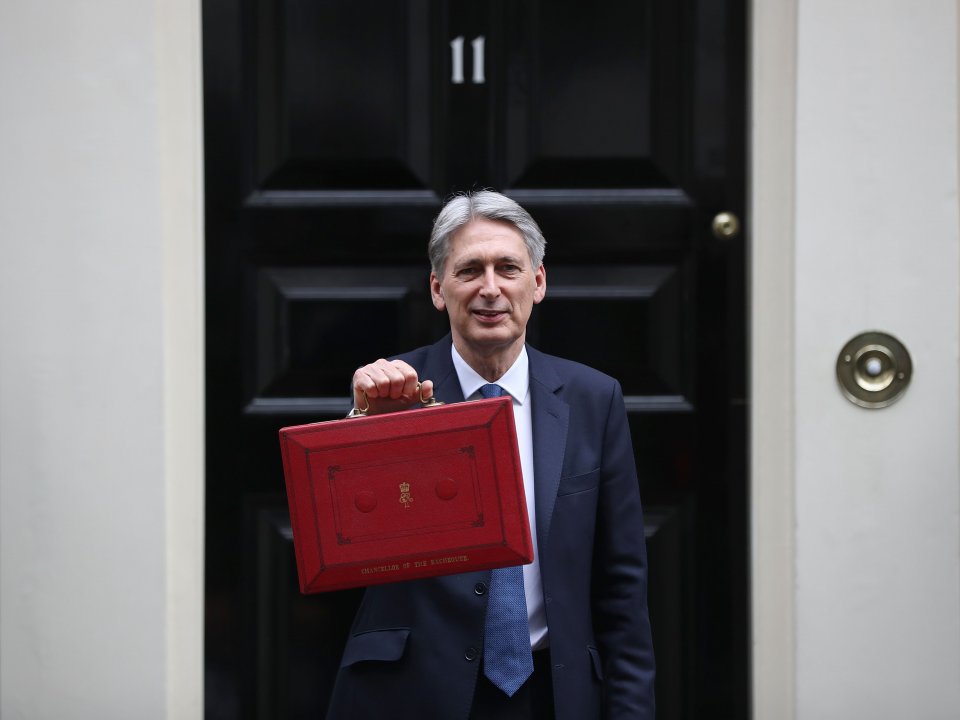Household Bills
What can we expect from this year’s Budget?

In a week’s time, Chancellor Philip Hammond will deliver his speech in the Commons setting out the government’s Budget. But what can we expect?
Whether young or old, rich or poor, we all hope the Chancellor of the Exchequer will deliver a Budget to help save us a few pounds.
But with the Brexit shadow, NHS crisis and social care agenda dominating the political scene, is anyone safe from potential austerity measures?
The 2018 Budget falls on Monday 29 October – earlier than the usual November date. So what can we expect to see from the Budget in terms of pensions, tax and property?
Pension tax relief cut
Hammond has given strong hints over cuts to the ‘eye-wateringly expensive pension tax breaks’ and many analysts believe he’ll cut the annual allowance – the maximum amount you can save each year without a tax charge – down from its current £40,000. Those earning over £150,000 could also see changes.
Adrian Lowcock, head of personal investing at Willis Owen, said: “It could be that we see a reduction in the threshold where this tapering applies. In the past, some changes to pension tax relief have taken effect from the date of the Budget announcement so if you’re thinking about pension contributions before any potential changes are announced, you might not have long to act.”
Income tax increases
The personal allowance – the amount of money you can earn before you start paying income tax – stands at £11,850 and the Chancellor has already committed to raising this to £12,500 by 2020. He also promised to raise the higher rate threshold to £50,000 by 2020.
But with the government’s plan on increasing NHS spending by 2023, Lowcock said a u-turn on these allowances “shouldn’t be completely ruled out”.
Reduced corporation tax
Companies currently pay tax on their profits at a rate of 19% and this is due to reduce to 17% by 2020.
“We wouldn’t rule out promises to reduce rates further to encourage big business to stay in the UK post Brexit which would be great news for businesses and investors in UK companies,” Lowcock said.
Reduced dividend allowance
There’s a £2,000 dividend allowance meaning no income tax is paid on that amount. It was slashed from £5,000 in April 2018 but a further cut to something in the region of £1,000 “wouldn’t be out of the question”, Lowcock said.
He added: “The dividend allowance is important to investors who hold shares or units outside of ISAs and pensions and further cuts could encourage more investors into growth, rather than income-oriented stocks.”
Capital Gains Tax reduction for long-term tenants
Two think tanks have suggested landlords should be given a tax discount if they sell their property to a tenant in a bid to free up the housing market for first-time buyers.
Gemma Harle, managing director of Intrinsic mortgage network, part of Quilter, said landlords may be clinging on to the hope that they could have some respite following a number of buy-to-let changes in recent times.
Help to buy
The Help to Buy scheme will end in 2021 and Harle said it’s likely the Budget will contain some commentary on what will happen to the scheme in the near future.
She added: “While the scheme has heralded some results, it is under pressure and has been widely accused of serving to inflate housebuilder share prices, alongside some unintentional consequences resulting in homebuyers ending up as ‘mortgage prisoners’.
“Those who first took advantage of the scheme five years ago and who are looking to remortgage are finding they are trapped paying an expensive variable rate mortgage with few options from lenders elsewhere. The government therefore may choose to scrap the scheme and instead favour the Lifetime ISA as a means to boost home ownership thanks to its flexibility and the potentially confusing overlap in policymaking.”
Stamp duty
There was a boon for first-time buyers in last year’s Budget as Hammond scrapped stamp duty for properties costing up to £300,000. Harle said there could be “further tinkering” in the upcoming Budget too.
“One change rumoured is the addition of a 3% surcharge of stamp duty for foreign buyers looking to buy UK property. The Prime Minister has claimed this additional money would be used to help rough sleepers which is likely to go down well at a time when she’s facing a barrage of abuse from all sides due to Brexit,” she said.
However, one potential downside of this is whether it would impact the London property market, which is already struggling.
Harle added: “Some may also claim that this kind of move signals we are not open to foreign business at just the time when we want to do the opposite. In reality, an increase is unlikely to dissuade wealthy foreign investors seeking these ‘safe haven’ assets.”